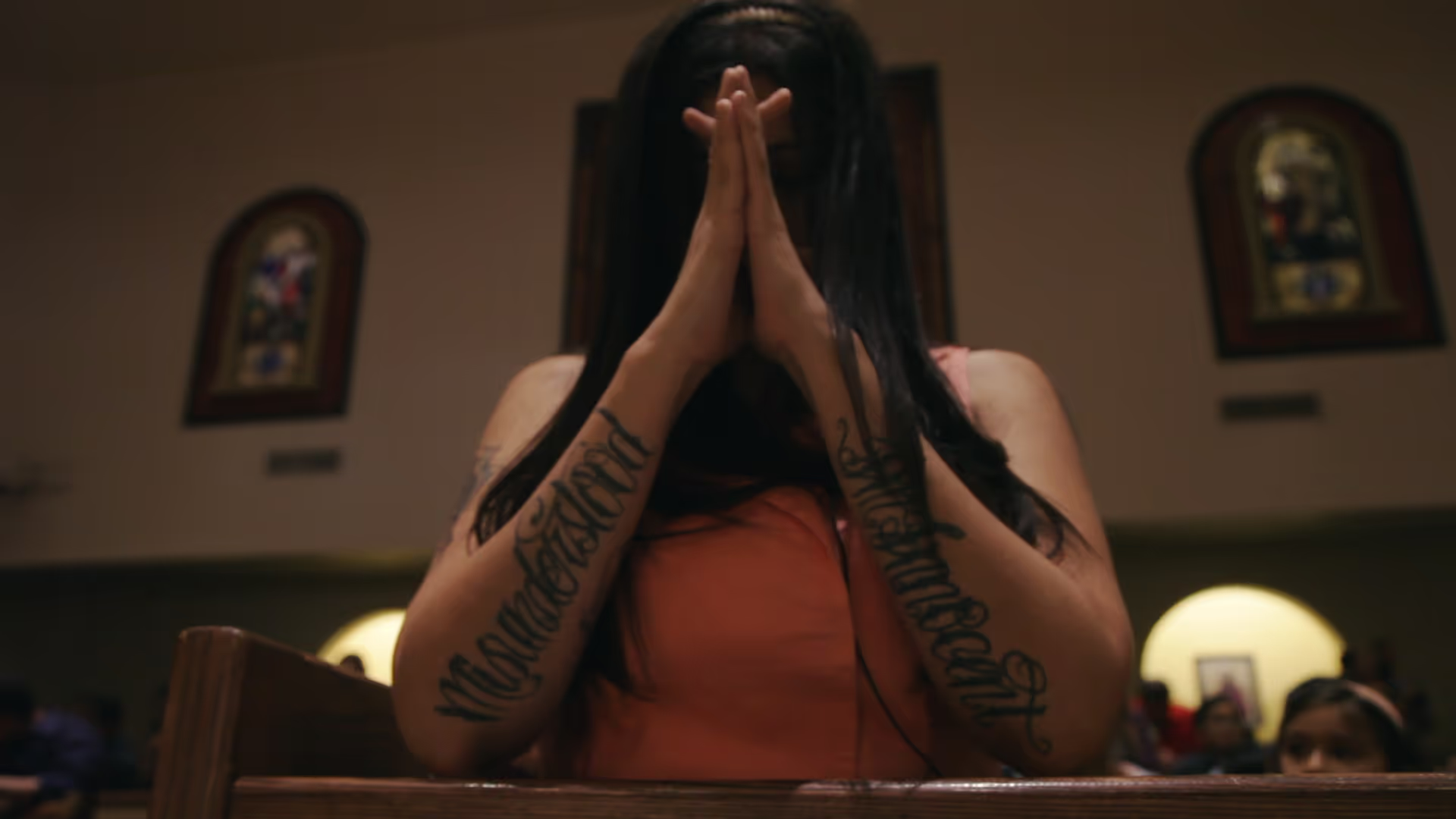On The Divide Discussion Guide
Film Summary & Using This Guide

FILM SUMMARY
McAllen, Texas is home to the last reproductive health clinic on the Texas/Mexico border. It is the center of the tension between religious protesters who try to stop patients coming inside and the security staff of the clinic who fight to protect it. On the Divide follows three different Latinx members of this community and the unforeseen choices they face for their daily survival.
USING THIS GUIDE
This guide is an invitation to dialogue. It is based on a belief in the power of human connection and designed for people who want to use On the Divide to engage family, friends, classmates, colleagues, and communities. In contrast to initiatives that foster debates in which participants try to convince others that they are right, this document envisions conversations undertaken in a spirit of openness in which people try to understand one another and expand their thinking by sharing viewpoints and listening actively.
The discussion prompts are intentionally crafted to help a wide range of audiences think more deeply about the issues in the film. Rather than attempting to address them all, choose one or two that best meet your needs and interests. And be sure to leave time to consider taking action. Planning next steps can help people leave the room feeling energized and optimistic, even in instances when conversations have been difficult.
For more detailed event planning and facilitation tips, visit https://communitynetwork.amdoc.org/.
Tips and Tools for Facilitators:
On the Divide is a unique film that is specially positioned to support abortion advocacy and create spaces for community building. By embracing nuance and humanity, the film notably serves those most affected by abortion restrictions in an area that has become a battleground for reproduction justice.
Given the film’s potential to spark discussion and positive change, we encourage organizers and hosts to watch the film beforehand and invite them to reflect on the goals of the event:
- What hopes do you have for this screening?
- What do you hope you will learn from this experience? What do you hope participants will learn?
- What do you anticipate will be a challenge in facilitating this event?
- What do you hope will happen after the event?
The documentary is a thoughtful, intentional, and emotional film and may bring up sensitive conversations. Consider the following tips on how to create and engage in a productive and respectful dialogue:
- Co-create community agreements ahead of discussion. An example can be found here.
- Practice active listening—approach the conversation from a place of solidarity and in service to those most affected by abortion restrictions. If emotional responses arise, stay calm and truly consider what the speaker has to say.
- Ask intentional questions—when building bridges across issue divides, try to understand and meet people where they are.
- Acknowledge people’s stories and emotions—if someone shares their personal experience, validate their experience and thank them for sharing. This can help create mutual respect and understanding.
In addition, consider the following suggestions to help ensure safety and care at your event:
- Co-facilitate your event so you can have a trusted partner in leading care-centered dialogue
- Invite mental health volunteers so that they can support anyone experiencing distress
- Review trigger warnings before the event begins
Community Agreements: What Are They? Why Are They Useful?
In an effort to create a collaborative space fueled by solidarity and respect, we encourage organizers and event hosts to integrate community agreements into their events. Community agreements help provide a framework and parameters for engaging in dialogue that allows you to establish a shared sense of intention ahead of engaging in discussion. Community agreements can be co-constructed, and creating them can be used as an opening activity that your group collectively and collaboratively undertakes ahead of engaging in dialogue. Here is a model of Community Agreements you can review. As the facilitator, you can gauge how long your group should take to form these agreements or if participants would be amenable to pre-established community agreements. Below are some sample community agreements:
- Use “I” statements—draw from your own experiences and speak on behalf of yourself rather than using “we.”
- Step up, step back—balance your participation by stepping up into the conversation and stepping back to help create space for others.
- Actively listen—listen without interrupting or centering your own response.
- Respect privacy and confidentiality—event hosts, organizers, and participants agree not to share private information outside of this space.
- Honor your needs—whether they be accessibility, emotional, or logistical needs, communicate those to event hosts and organizers and/or feel empowered to step away from the conversation if triggered.
- Center care—remember that we are here to care for ourselves and our communities. Allow caring values to guide participation in the conversation.
A note on inclusive language
Historically, the fight for abortion care and rights has centered the experience of white cis-gendered women. The impact campaign for On the Divide is committed to centering the experience of all those affected by abortion restrictions, especially those most affected—women and birthing people who are Latinx, BIPOC, and/or immigrants.
We encourage event organizers and hosts to integrate inclusive language that acknowledges and centers the experience of trans and nonbinary people and people of color in the fight for reproduction justice and abortion access. For helpful definitions and clarification of language, you can visit The Gender Spectrum’s “Language of Gender.”
